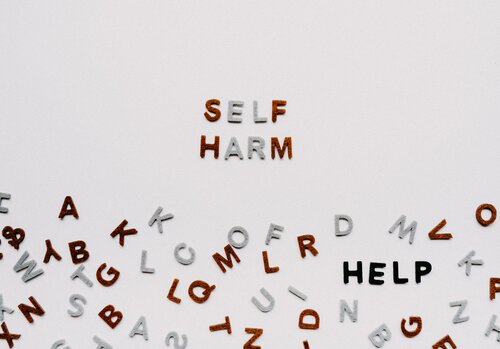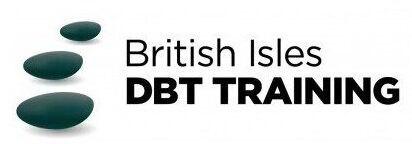
Online DBT
TREATING SELF HARM AND SUICIDE WITH DBT





Freephone help via the Samaritan helpline in the U.K: 116 123
Self-harm and suicidal thoughts are commonly associated with severe mental health conditions such as depression, Emotionally Unstable Personality Disorder (EUPD), and eating disorders, to name just a few.
The reasons why people self-harm or have suicidal behaviours, however, differs from person to person.
For some individuals, self-harm can be linked to specific experiences and trauma. You may be self-harming or having suicidal thoughts due to ongoing difficult experiences or reliving the ones from your past.
If you can relate to the above, there is hope.
We aim to help people like you who are experiencing highly challenging thoughts, and behaviours learn healthier coping methods.
Of course, this can be an overwhelming process because of the perception that habits often difficult to stop. However DBT is highly effective at managing self harm and suicidal urges.
Even if you cannot identify why you behave in such ways or why you have dark thoughts of ending your life, therapy can aid you greatly, and you are not alone.
Any difficult situation or experience in life can cause a person to self-harm or make them think they should take their life.
Below, we’ve listed some of the most common reasons:
Some people self-harm specific areas of their body that are linked to earlier trauma. And, others find that drinking alcohol or using drugs increases the likelihood of self-harm or that self-harm is more likely to happen at certain times (at night, for instance).
When attending DBT with us, we will work with you to identify ‘triggers’ and allow you to recognise and work on better coping techniques.
For people who self-harm, finding non-isolating coping mechanisms is key to feeling better in the long term.
Some individuals experience a deep feeling of guilt and shame after they self-harm. Sadly, this can lead to further self-harm as a result of such complex emotions.
While self-harm may serve temporary escapism and relief from bad feelings, it does create complicated cycles that are destructive and challenging to break.
Treatment for self-harm can be intimidating for many, and they wonder if it will help.
Whether you’re trying to overcome self-harm or need support, help is available, and DBT therapy is a very effective treatment option.
DBT for attempted Suicide or related Suicidal Thoughts
Sadly, many people have to deal with challenging, suicidal thoughts. In the U.K, one in eight people (13%) say they have experienced suicidal thoughts at some point in their life.
DBT has been found effective in reducing both suicidal ideation and behaviours. This gives hope for many people just like you.
This type of therapy addresses immediate motives for such thoughts and behaviours and then delves deeper into and works through the root causes.
In DBT, four skills are taught: mindfulness, distress toleration, interpersonal effectiveness, and emotion regulation.
Developing more constructive coping skills and overcoming self-harm/suicidal thoughts require all four of these tools.
As part of the treatment, DBT directly addresses suicidal feelings and behaviours. Specifically, this involves assessing the factors contributing to or maintaining specific suicidal thoughts and behaviours episodes and providing solutions to manage them.
An essential aspect of mindfulness is developing awareness and acceptance of the present moment.
It’s about learning to let go of the past or the future and focus all your attention on what’s right in front of you. Being mindful allows you to observe your thoughts and feelings as they arise and accept them without judgment.
The ability to detach judgment from thoughts, feelings, and experiences is an essential component of mindfulness.
Self-harm is a reaction to extreme emotions based on impulsive behaviour. Mindfulness works by putting a pause between feeling the intense emotion and acting upon it. Practising this pause will give you time to consider another coping mechanism that is less destructive.
Life is full of ups and downs that are unpredictable. The unpredictable nature of life leads to self-harm as a way to cope for many.
Distress tolerance teaches you to cope with this uncertainty and the painful feelings that result. You learn how to cope with your heightened emotion, urge surfing and without resorting to harmful coping mechanisms.
Mindfulness contributes to distress tolerance. To tolerate and work through the discomfort, it is essential to recognise and accept the present moment.
Distress tolerance is another way to put a pause between your initial thought or feeling and your coping mechanism.
Communication difficulties often cause self-harm. If you’re having trouble talking to someone, you turn to self-harm or suicidal ideation instead.
The goal of interpersonal effectiveness is to improve your interpersonal communication skills to express your needs.
Along with teaching you how to ask for what you need, interpersonal effectiveness teaches you how to say no. In addition to improving relationships with those around you, you will also learn how to establish and maintain boundaries.
It is challenging to master emotional regulation, but it is one of the most critical skills to possess.
An extreme emotional high or low can lead to self-harm. To overcome your struggles with self-harm, you must learn to understand and regulate your emotions.
Emotional regulation teaches you that feelings are fleeting and that emotions are not permanent.
You can eliminate your tendency to react every time your emotions arise by developing control over them.
Help is available the moment you decide to ask for it. We offer a complete DBT programme for people like you, who suffer from self-harm and suicidal thoughts.
Making lifelong changes is best accomplished by completing our full DBT programme.
Using the skills we teach and our approach to therapy, you will achieve your individual goals.
Contact us to learn more about your options for online DBT therapy today.

SPEAK TO OUR TEAM
Start off with a call where you can ask any questions, find out more about what we have on offer, and book in your initial assessment.

BOOK YOUR ASSESSMENT
Use the online booking system below or call our team who will find a time that suits you, for an online hour long assessment via Zoom or Vsee. Same week appointments available.

DBT TREATMENT PACKAGE
Start gaining mastery over your behaviour, thoughts, and emotions with our personalised DBT treatment packages. Ready to start the process?
Want to find out more about DBT, or are you ready to book in an assessment?
We are here to help, so send us your details via the form attached, and we will get back to you with the information you need.
Want to read about DBT in the meantime, then check out our DBT brochure below.
Want to get straight in contact? Call us on our number below or send us an email and a member of our team will get straight back to you.
Phone
0203 432 5909ADDRESS
Suite 788
Unit 3A
34-35 Hatton Garden
Holborn
London
EC1N 8DX
UK